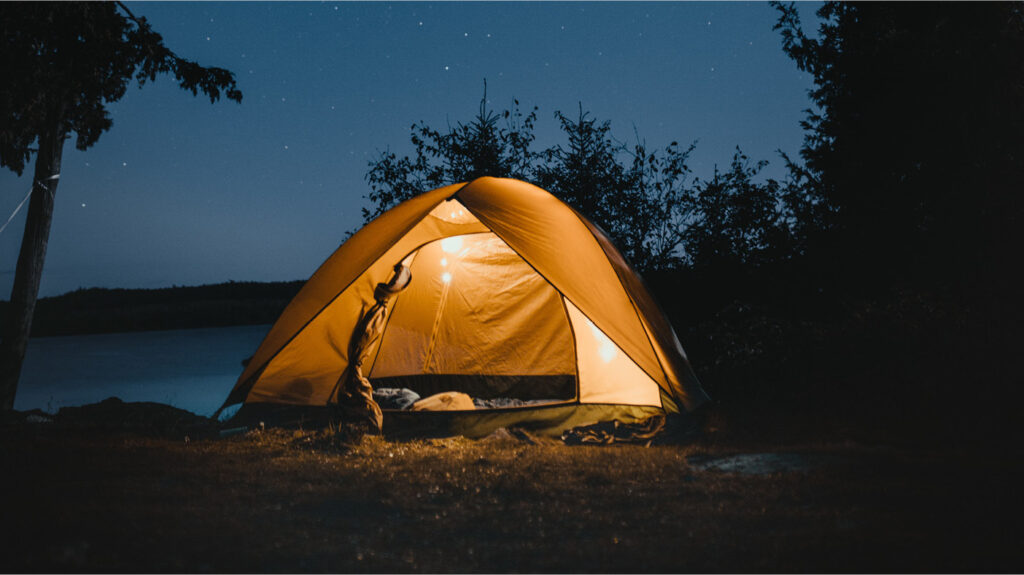Choosing the right tent can significantly enhance your outdoor adventures, providing a comfortable and reliable shelter from the elements. Whether you’re a seasoned camper or a first-time adventurer, selecting a tent involves considering various factors such as weather conditions, the number of occupants, and the type of terrain. With a myriad of options available on the market, it can be overwhelming to decide which tent best suits your needs. This guide will walk you through the essential aspects of choosing the right tent, ensuring that your camping experience is both enjoyable and safe.
Understanding Tent Types
There are several types of tents designed for different camping styles and environments. Dome tents are among the most popular due to their versatile design and easy setup. They typically feature two poles that cross in the center, creating a freestanding structure that can withstand moderate wind and rain. These tents are ideal for casual campers and backpackers looking for a balance between comfort and simplicity.
For more rugged conditions, consider a tunnel tent or a geodesic tent. Tunnel tents offer excellent space and stability, making them suitable for family camping trips. Their design, which includes multiple flexible poles, provides ample headroom and sleeping space. Geodesic tents, on the other hand, are engineered for extreme weather conditions. Their complex pole structure distributes weight evenly, making them highly stable in high winds and heavy snow. These tents are perfect for mountaineers and those venturing into harsh environments.
Considering Size and Capacity
When choosing a tent, size and capacity are crucial factors to consider. Tents are typically classified by the number of people they can accommodate, such as two-person, four-person, or six-person tents. However, these ratings often refer to the maximum capacity without much room for gear. If you prefer extra space or have a lot of equipment, it’s wise to choose a tent with a higher capacity than the number of campers. For instance, a three-person tent for two people can provide additional comfort and storage space.
Additionally, consider the tent’s peak height and floor dimensions. Taller campers or those who like to move around comfortably inside the tent should look for models with higher peak heights. Floor dimensions are equally important, especially if you use sleeping pads or air mattresses. Check the tent’s floor plan to ensure it can accommodate your sleeping arrangements comfortably. Vestibules, or additional covered areas outside the main tent, are also useful for storing gear and keeping the interior clutter-free.
Evaluating Features and Materials
Modern tents come with a variety of features and are made from different materials, each affecting the tent’s performance and durability. Look for tents with double-wall construction, which includes a breathable inner layer and a waterproof outer layer (rainfly). This design helps reduce condensation and improves ventilation, keeping the interior dry and comfortable. Mesh panels are also beneficial for ventilation, especially in warm weather.

The materials used for the tent’s fabric and poles play a significant role in its durability and weight. High-denier polyester or nylon fabrics are robust and resistant to tears, while lightweight aluminum poles provide a good balance between strength and weight. Consider the tent’s waterproof rating, typically measured in millimeters. A higher rating indicates better water resistance, essential for rainy conditions. Additional features like easy-access doors, multiple windows, and internal pockets can enhance your camping experience by providing convenience and functionality.
Conclusion
Choosing the right tent is not just about finding a place to sleep; it’s about ensuring safety, comfort, and enjoyment during your outdoor adventures. By thoroughly understanding the various types of tents available, you can select one that best matches your specific camping style and the conditions you expect to encounter. For instance, a dome tent offers versatility and ease of setup for general camping, while a geodesic tent provides unparalleled stability for extreme weather conditions.
Ultimately, investing time in researching and choosing the right tent can make a significant difference in the quality of your camping experience. A well-chosen tent provides a secure and comfortable retreat, allowing you to fully enjoy the beauty of nature without worrying about your shelter. Whether you’re setting up camp in a tranquil forest, on a rugged mountainside, or at a family-friendly campsite, the right tent will help you create lasting memories under the stars. So, take the time to explore your options, understand your needs, and make an informed decision to ensure that your next camping trip is as enjoyable and stress-free as possible.



